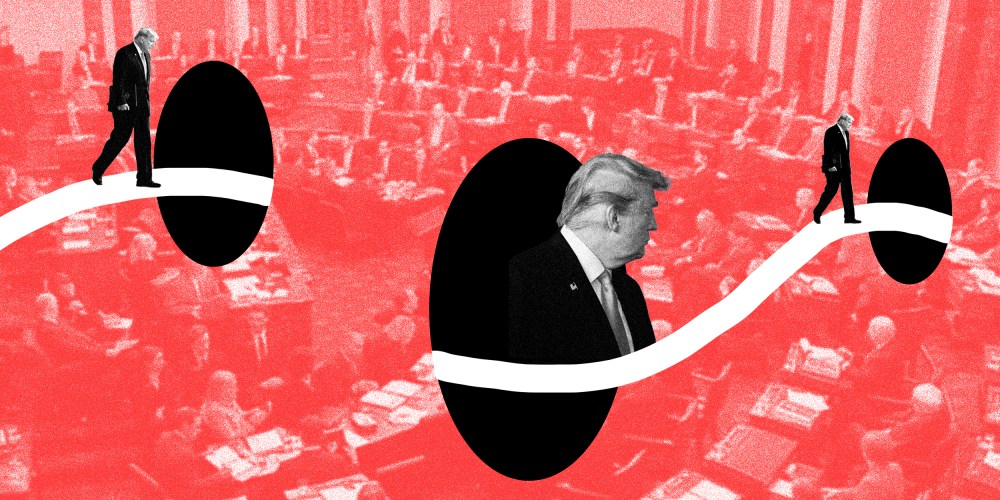Stop me if this sounds familiar: President Donald Trump has done or said a thing that has set Twitter ablaze. You send a link to your group chat. Someone responds, “How is that legal?“
Maybe it shouldn’t be. Maybe it isn’t. Either way, it’s a question Congress must answer in its next session.
Trump spent four years riding roughshod over norms and standards that have been in place for decades. It turns out that just kind of hoping the country’s chief executive follows the laws and is cowed by the threat of impeachment doesn’t cut it in the face of concerted malice. And to make sure it doesn’t happen with future presidents, Congress needs to undertake the kind of government overhaul not seen since Watergate.

After President Richard Nixon resigned rather than face impeachment and removal, Congress took it upon itself to enact changes that could prevent similar abuses. They included the establishment of the Federal Election Commission, the passage of the Privacy Act of 1974 and the creation of the federal inspectors general system. But in the decades since then, many of these attempts to wrest power back from the executive branch have slowly retracted.
Congressional authority over spending, declaring war and acting as a guardrail on the presidency were all eroding before Trump was inaugurated. Once in office, Trump did what he’s done for years as a businessman — skillfully exploit every loophole available to him while blowing holes in other protections to create new loopholes. That’s taken the form of tweeting demands for investigations of his political opponents, finding ways to keep generating profit from his businesses while in office and refusing to hand over documents to Congress that could show wrongdoing on his part.
Congress needs to undertake the kind of government overhaul not seen since Watergate.
Not all of the norms he’s violated can be upheld via legislation — and not all of them should be, lest they overcompensate and erase the divisions of power Congress is now trying to reinforce. But that still leaves plenty to tackle in 2021.
Some of the bigger changes have already made their way into draft legislation. House Democratic leadership introduced the Protecting Our Democracy Act on Sept. 23, almost a year to the day after the House announced its formal impeachment inquiry into Trump. Among the 12 sections in the bill are provisions to: add new layers of accountability for acting officials, Trump’s preference over Senate-confirmed appointees; add time limits on emergency declarations by the president, like the one Trump declared on the southern U.S. border; and limit presidential interference in Justice Department investigations.
The bill, if passed and signed into law, would also strengthen the independence of inspectors general, who have been a target of Trump’s ire in the aftermath of the impeachment saga. Political appointees who violate the Hatch Act’s bans on partisan campaign activities — as Trump’s appointees have been very willing to do — would face consequences, too. The bill would give the Office of Special Counsel the authority to levy “an administrative fine of up to $50,000” against employees who aren’t disciplined by the president for their violations.













